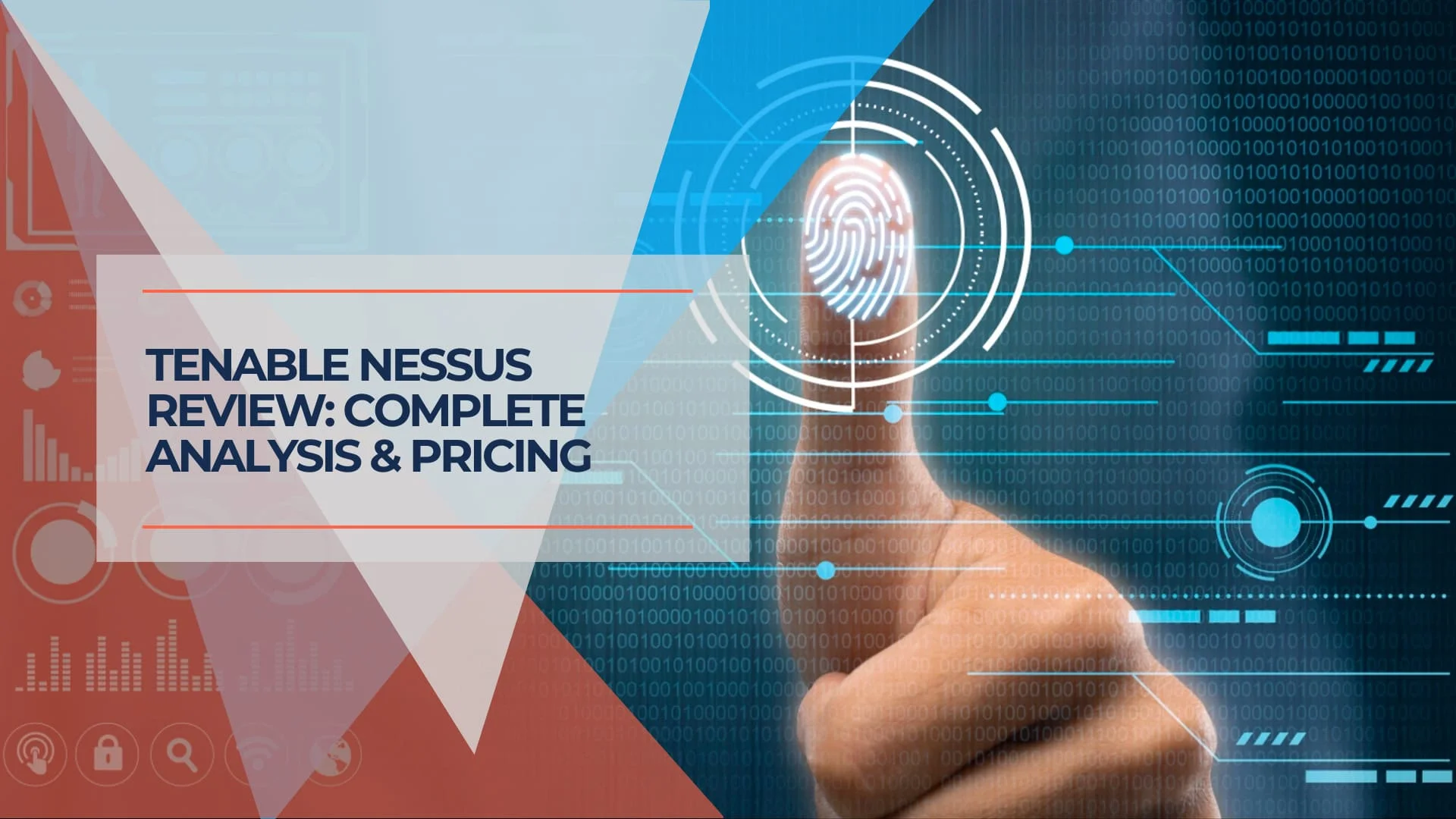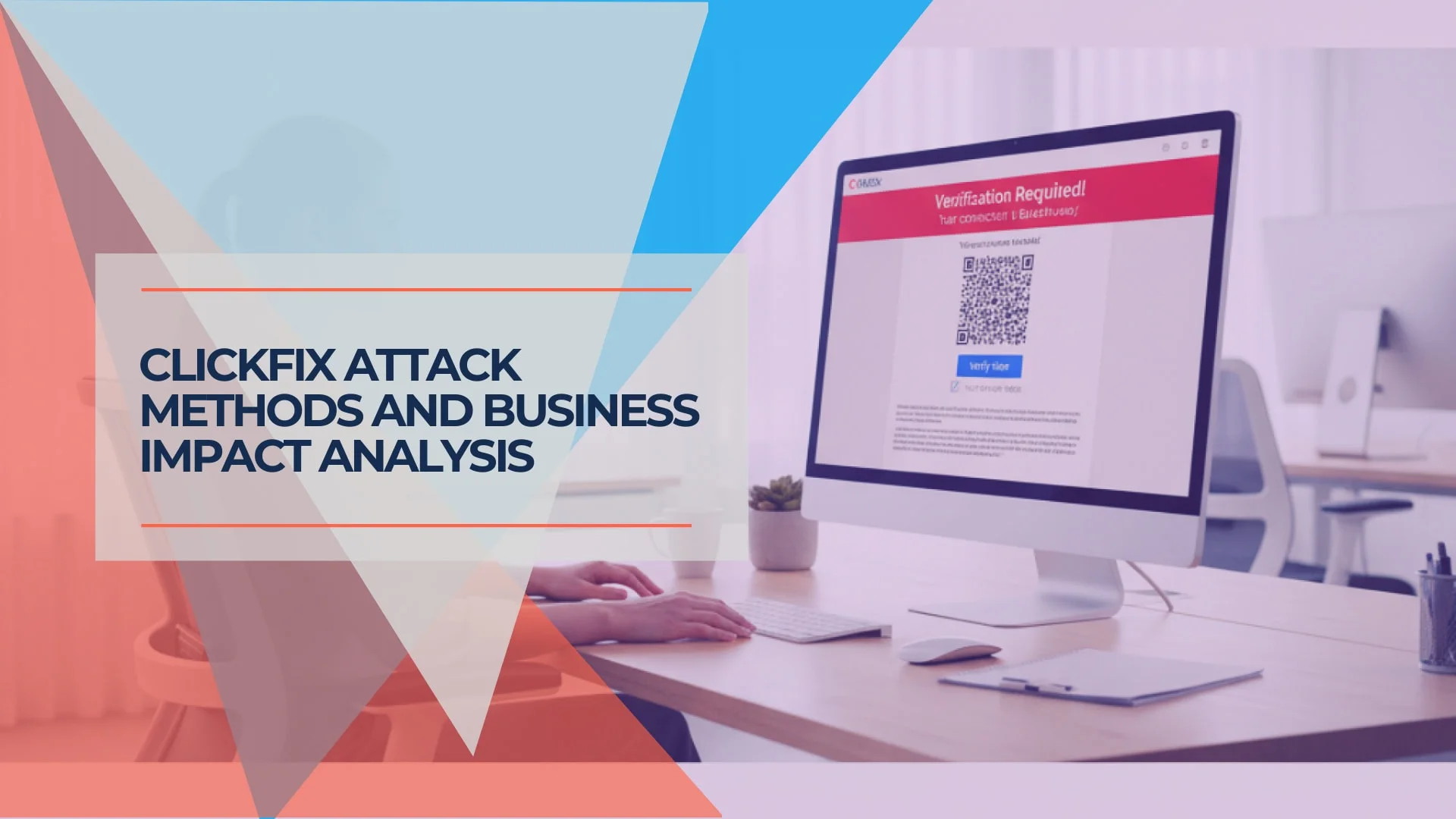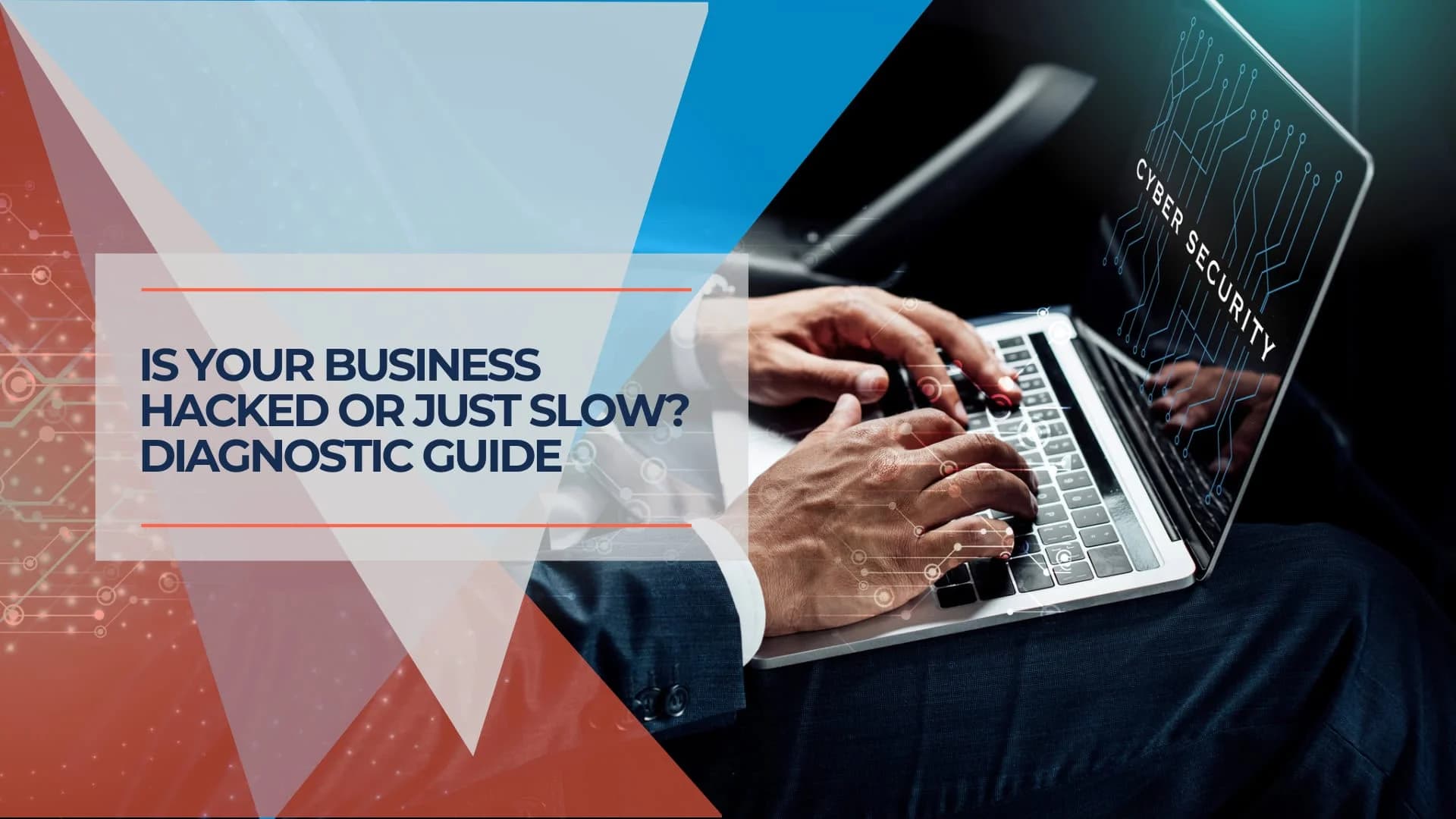Tenable Nessus Professional Review 2026: Comprehensive Vulnerability Scanner Analysis
Detailed Tenable Nessus Professional review covering vulnerability scanning capabilities, pricing tiers, competitive analysis, and implementation guidance. Find out if Nessus is right for your organization's security needs.

A detailed examination of the market-leading vulnerability assessment platform for business security needs
Tenable Nessus has maintained its position as the most widely deployed vulnerability scanner in the cybersecurity industry for over two decades. With approximately 43,000 organizations worldwide relying on the platform and widespread adoption across the Fortune 500, Nessus remains the industry standard for consultants because its reporting format is universally accepted by auditors and compliance frameworks.
This review examines whether Nessus Professional justifies its premium positioning in an increasingly competitive market, analyzing everything from core functionality to real-world implementation costs for businesses of various sizes. We'll also clarify the critical distinction between Nessus Professional (the standalone scanner) and Tenable Vulnerability Management (the cloud platform), as confusion between these products is a common pain point for buyers.
Affiliate Disclosure: This article contains affiliate links. If you make a purchase through these links, we may earn a small commission at no extra cost to you.
At a Glance
| Pros | Cons |
|---|---|
| Extensive vulnerability database (77,000+ CVEs) | Higher cost compared to open-source alternatives |
| Industry-leading low false positive rate | Reporting interface feels dated (static PDFs) |
| Proven reliability across diverse environments | No centralized dashboard for multiple scanners (requires Tenable.io) |
| Comprehensive compliance auditing capabilities | Requires technical expertise for optimization |
| Free version available for small networks | Resource-intensive for large-scale scanning |
Bottom Line
Nessus delivers professional-grade vulnerability assessment with proven accuracy and comprehensive coverage. While the investment is substantial, organizations requiring reliable security scanning will find the platform's capabilities align well with professional security requirements.
Our Rating: 4.2/5 Stars
What Is Tenable Nessus?
Tenable Nessus is a vulnerability assessment platform designed to identify security weaknesses, missing patches, and configuration issues across network infrastructure. Originally launched as an open-source project in 1998, the platform transitioned to a commercial model in 2005, enabling focused development of what has become the industry's most comprehensive vulnerability scanner.
The platform operates through a client-server architecture, conducting automated scans to identify software flaws, malware, and misconfigurations across various operating systems, devices, and applications. Nessus can be deployed on multiple platforms, including traditional servers and lightweight devices like Raspberry Pi, providing flexibility for diverse IT environments.
Core Capabilities
Key Features
Vulnerability Detection – The platform maintains a database of over 77,000 CVEs and 210,000+ plugins, providing comprehensive coverage of known security vulnerabilities across different technologies and platforms.
Scoring and Prioritization – Nessus incorporates multiple vulnerability scoring systems, including CVSS v4, EPSS, and Tenable's proprietary VPR (Vulnerability Priority Rating) system, helping organizations prioritize remediation efforts based on actual risk.
Template Library – More than 450 pre-configured scanning templates enable rapid deployment for specific use cases, from basic network scans to detailed compliance audits.
Live Results – The platform automatically performs offline vulnerability assessments with every plugin update, ensuring continuous monitoring without manual intervention. This feature works best when credentialed scanning is enabled, allowing deeper system analysis.
Free Tier Available
Nessus Essentials provides the same core scanning engine as professional versions at no cost, supporting up to 16 IP addresses per scanner. This free tier offers an accessible entry point for small businesses or organizations wanting to evaluate the platform's capabilities before committing to a paid subscription.
Understanding the Product Line: Nessus Professional vs. Tenable Vulnerability Management
Critical Distinction
Many buyers confuse Nessus Professional (the standalone scanner) with Tenable Vulnerability Management (formerly Tenable.io, the cloud platform). This distinction is crucial for understanding what you're actually purchasing.
Nessus Professional is a standalone vulnerability scanner that:
- Runs on a single server or workstation
- Scans network assets via active scanning (no agent support)
- Provides local reporting and management through its web interface
- Costs approximately $2,900-$3,390 per year for unlimited assessments
- Does not include centralized management for multiple scanners
- Does not support agent-based scanning
Tenable Vulnerability Management (Tenable.io) is a cloud-based platform that:
- Provides centralized management for multiple Nessus scanners
- Supports both network scanning and agent-based monitoring
- Offers cloud-native dashboards, advanced analytics, and integrations
- Requires a separate subscription (typically more expensive)
- Includes features like continuous monitoring and predictive prioritization
Nessus Manager is the on-premise alternative to Tenable.io for organizations that need:
- Centralized management of multiple Nessus scanners
- Agent deployment and management capabilities
- Distributed scanning across multiple locations
- On-premise data retention requirements
If you see features like "Agent Deployment," "Cloud Dashboard," or "Centralized Management" in marketing materials, verify whether these require Nessus Professional alone or if they necessitate Tenable Vulnerability Management or Nessus Manager. This is the most common source of buyer frustration and negative reviews.
Security and Compliance Features
Vulnerability Assessment Capabilities
Nessus provides comprehensive scanning across traditional IT infrastructure, cloud environments, web applications, and external attack surfaces. The platform supports both authenticated and unauthenticated scanning methodologies, allowing security teams to assess vulnerabilities from multiple perspectives.
Authenticated Scanning: When provided with appropriate credentials, Nessus can perform deeper system analysis, identifying vulnerabilities that may not be visible through external scanning alone.
Configuration Auditing: Built-in compliance checking against industry standards, including CIS benchmarks, NIST frameworks, and regulatory requirements, helps organizations maintain security baselines.
Plugin Architecture: Dynamically compiled plugins improve scan performance while ensuring coverage of newly discovered vulnerabilities through regular automated updates.
Framework Alignment
NIST Cybersecurity Framework
- Identify: Comprehensive asset discovery and vulnerability enumeration
- Protect: Configuration auditing and security baseline verification
- Detect: Continuous monitoring with automated threat intelligence updates
- Respond: Detailed vulnerability data and prioritization for incident response
- Recover: Assessment capabilities to validate remediation effectiveness
Compliance Support: Pre-built audit templates support various regulatory requirements, including PCI-DSS, HIPAA, SOX, and industry-specific standards. Organizations implementing comprehensive cybersecurity strategies will find that Nessus integrates well with established security frameworks. For businesses in regulated industries, combining vulnerability scanning with broader IT security services creates a more robust security posture.
Implementation and Setup
Technical Requirements
Server Specifications:
- Windows, Linux, macOS, or Unix-based systems
- ARM processor support (Apple Silicon M3/M4, Raspberry Pi for edge scanning)
- Minimum 4GB RAM (8GB+ recommended for large scans)
- Disk space: 20GB minimum (plan for 100GB+ for historical scan data retention)
- Network connectivity to target systems
- Adequate bandwidth for scanning operations
- Administrative access for configuration and policy creation
Network Considerations:
- TCP port 8834 for web interface access
- Wide range of ports used during actual vulnerability scanning
- Bandwidth planning for large-scale deployments
- Note: Agent-to-manager communication requires Nessus Manager or Tenable Vulnerability Management, not Nessus Professional
For organizations planning vulnerability scanning as part of their broader IT infrastructure setup, proper network architecture becomes crucial for optimal performance.
Tenable.io Overview: Architecture Review and Predictive Prioritization
Deployment Timeline
| Phase | Timeline | Activities |
|---|---|---|
| Phase 1 | Weeks 1-2 | Platform installation, basic configuration, initial network discovery scans |
| Phase 2 | Weeks 3-4 | Policy customization, compliance template configuration, comprehensive scanning |
| Phase 3 | Month 2 | Advanced feature implementation, reporting optimization, integration with existing security infrastructure |
Organizations new to vulnerability management may benefit from professional guidance during implementation. Contact our security team for assistance with deployment planning and configuration.
Common Implementation Challenges
Implementation Tips
Resource Management – Large-scale deployments require careful planning to manage network bandwidth and system resources during scanning operations.
Policy Configuration – While user-friendly, enterprise deployments benefit from careful planning of scanning policies to balance thoroughness with operational impact.
Historical Data Storage – Plan adequate disk space for scan history retention, as large environments can generate significant data over time. This is a common pain point that catches organizations off-guard.
Pricing Analysis
Subscription Tiers
| Tier | Price | Best For |
|---|---|---|
| Nessus Essentials | Free | Small networks (up to 16 IPs), evaluation |
| Nessus Professional | $2,900-$3,390/year | Most business environments |
| Nessus Expert | Premium pricing | External attack surface, IaC scanning |
Nessus Essentials (Free): Professional-grade scanning for up to 16 IP addresses per scanner. Includes the same scanning engine and plugin updates as paid versions, with community support. Ideal for small networks, home offices, or evaluation purposes. Start with Nessus Essentials to test the platform before committing to a paid tier.
Nessus Professional: Base pricing typically ranges from $2,900 to $3,390 annually for comprehensive vulnerability scanning with unlimited assessments and standard support. Prices at the higher end (~$3,590) usually include Advanced Support add-ons. Suitable for most business environments requiring regular vulnerability assessment.
Nessus Expert: Premium tier with additional capabilities including external attack surface scanning, domain monitoring, and Infrastructure as Code (IaC) scanning. Note that true "Cloud Workload Protection" typically requires separate Tenable Cloud Security products.
Additional Costs
| Add-On | Price | Description |
|---|---|---|
| Advanced Support | ~$400/year | 24/7 phone, chat, and community support |
| Training | $195 | One-year access to on-demand video courses |
Total Cost Considerations
| Organization Size | Annual Cost Range |
|---|---|
| Small Networks (Under 16 IPs) | Free with Nessus Essentials |
| Small Business (25-100 assets) | $2,900-4,000 |
| Medium Business (100-500 assets) | $2,900-6,000 |
| Enterprise (1000+ assets) | $5,000-15,000+ |
Cost Savings Tip
Multi-Year Discounts: Tenable is aggressive about offering discounts for 2-3 year commitments. Organizations planning long-term use should negotiate multi-year terms to reduce annual costs by 10-20%.
Pricing is subject to annual adjustments typically occurring in March. Organizations should verify current pricing directly with Tenable or authorized resellers.
Competitive Comparison
Nessus vs OpenVAS vs Qualys VMDR
| Feature | Tenable Nessus | OpenVAS | Qualys VMDR |
|---|---|---|---|
| CVE Coverage | 77,000+ CVEs | 100,000+ NVTs | 150,000+ QIDs |
| False Positive Rate | Industry-leading (low) | Higher rate reported | Low, with evidence validation |
| Deployment | On-premise/Cloud | Open source/On-premise | Cloud-native |
| Pricing | $2,900-$3,390/year | Free (community) | ~$5,000+ (typically higher) |
| Plugin Updates | Daily automated updates | Regular community updates | Continuous cloud updates |
| Support | 24/7 with Advanced Support | Community-based | Enterprise support included |
Nessus vs. OpenVAS
Key Differences
Coverage: Nessus offers over 77,000 CVEs while OpenVAS (Greenbone) now boasts 100,000+ Network Vulnerability Tests (NVTs). Both provide extensive coverage, though they organize and count vulnerabilities differently.
Accuracy: Nessus maintains an industry-leading low false positive rate, reducing time spent investigating non-existent vulnerabilities. OpenVAS has improved significantly but generally reports higher false positive rates.
Support: Commercial support versus community-based assistance affects enterprise deployment considerations.
Cost: OpenVAS provides a free, open-source alternative with customization opportunities, but requires significantly more technical expertise for setup and maintenance.
Nessus vs. Qualys VMDR
Deployment: Nessus offers on-premise and cloud options, while Qualys focuses on cloud-native deployment.
Pricing Model: Qualys is typically more expensive than Nessus for SMBs, often starting around $5,000+ or sold in asset packs. Compared to enterprise competitors like Qualys or Rapid7 InsightVM, Nessus Professional is actually the budget/value option.
Feature Set: Both platforms provide comprehensive vulnerability management with different strengths in specific areas.
Integration: Varying capabilities for integration with existing security infrastructure and workflows.
Who Nessus Professional Is NOT For
Honest Assessment
Understanding when Nessus Professional is not the right fit is just as important as knowing when it is. Here are scenarios where you should consider alternatives:
Teams Needing Real-Time Agent-Based Monitoring
If you need continuous, agent-based vulnerability monitoring across distributed endpoints, Nessus Professional alone may not be sufficient. You'll require:
- Nessus Manager (on-premise centralized management)
- Tenable Vulnerability Management (cloud platform)
- Or consider alternatives like Qualys VMDR or Rapid7 InsightVM that include agent management in base pricing
Organizations Requiring Modern Dashboards and Visualization
Nessus Professional's reporting is functional but uses a traditional approach. If you need:
- Modern, interactive dashboards
- Real-time visualization across multiple scanners
- Executive-friendly reporting with charts and trends
You'll either need to export data to other tools (SIEM, GRC platforms) or upgrade to Tenable Vulnerability Management. The static PDF reports work well for compliance documentation but may not meet expectations for teams accustomed to modern SaaS-style interfaces.
Budget-Conscious Teams with Strong Technical Skills
If you have:
- Limited security budget (under $3,000/year)
- Strong Linux/security expertise
- Time to invest in setup and maintenance
OpenVAS (Greenbone) may be a better fit. With 100,000+ NVTs and no licensing costs, it's a legitimate alternative if you can handle the steeper learning curve and community-based support model. Organizations evaluating multiple cybersecurity tools should weigh these trade-offs carefully.
Organizations Needing Built-In Remediation Ticketing
Nessus Professional identifies vulnerabilities but doesn't include:
- Built-in ticketing systems
- Automated remediation workflows
- Integration with IT service management tools (without custom work)
If you need vulnerability-to-ticket automation out of the box, consider platforms with integrated workflow management or plan to integrate Nessus with your existing ITSM tools.
Small Networks Under 16 IP Addresses
If you're scanning fewer than 16 IP addresses, consider starting with Nessus Essentials (free) instead. The free tier provides the same scanning engine and may be more cost-effective unless you exceed this limit or require commercial support.
Performance Analysis
Strengths
What Nessus Does Well
Comprehensive Coverage – Extensive vulnerability database with over 77,000 CVEs provides comprehensive threat detection across diverse environments.
Proven Accuracy – Low false positive rate reduces operational overhead and improves efficiency of security operations.
Mature Platform – Twenty-five years of development have resulted in a stable, reliable scanning engine with broad enterprise adoption and proven track record.
Flexible Deployment – Multiple deployment options accommodate various organizational requirements and technical constraints.
Limitations
Considerations
Dated Reporting Interface – The reporting UI feels dated compared to modern SaaS platforms. Reports are primarily static PDFs, requiring export to other tools for modern visualization and trending.
No Multi-Scanner Management – Nessus Professional cannot centrally manage multiple scanners. Organizations with distributed environments need Nessus Manager or Tenable.io, significantly increasing costs.
Cost Considerations – Higher pricing compared to open-source alternatives may challenge smaller organizations' budgets, particularly with regular annual price adjustments that typically occur each March.
Resource Requirements – Large-scale deployments require careful planning for disk space (historical data), network bandwidth, and system resources during scanning operations.
Recommendations
Best Suited For
- Security Consultants & MSPs: Professionals requiring industry-standard, audit-ready reports that clients and auditors universally accept. The reporting format's widespread recognition simplifies client deliverables.
- Compliance-Driven Environments: Organizations requiring detailed vulnerability assessment for PCI-DSS, HIPAA, SOX, or other regulatory frameworks. Learn more about compliance-focused cybersecurity services.
- Established Organizations: Companies with dedicated IT or security personnel who can leverage Nessus's comprehensive capabilities effectively
- Single-Location Deployments: Businesses scanning from one location without need for distributed scanner management or agent-based monitoring
Consider Alternatives When
- Budget Under $3,000/Year: Nessus Essentials (free, up to 16 IPs) or OpenVAS may be more appropriate if you have strong Linux/security expertise
- Modern Dashboard Requirements: Organizations needing interactive visualizations should evaluate Tenable Vulnerability Management or cloud-native alternatives
- Distributed Environments: Managing multiple scanners or deploying agents requires Nessus Manager or Tenable.io rather than Nessus Professional
- Limited Technical Resources: Organizations without dedicated security expertise may benefit from fully managed vulnerability services rather than self-managed scanning platforms
Final Assessment
Tenable Nessus Professional remains the industry standard for vulnerability scanning, particularly for consultants and organizations requiring audit-ready reports that are universally accepted by compliance frameworks. The platform's extensive vulnerability coverage (77,000+ CVEs), industry-leading accuracy, and 25+ years of development make it a reliable choice for organizations serious about vulnerability management.
What Works Well: Nessus Professional delivers comprehensive, accurate vulnerability detection with minimal false positives. The scanning engine is mature, stable, and well-documented. For organizations needing a proven, standalone scanner, Nessus Professional offers reliable performance.
Important Considerations: The reporting interface uses a traditional approach with static PDF outputs rather than modern interactive dashboards. Organizations requiring real-time visualization across multiple scanners will need to export data to other tools or consider upgrading to Tenable Vulnerability Management. Nessus Professional functions as a standalone scanner and does not include centralized management for multiple scanners or agent deployment capabilities.
Value Analysis: At $2,900-$3,390 annually, Nessus Professional represents a mid-range investment. Enterprise alternatives like Qualys VMDR typically start around $5,000 or higher, while open-source options like OpenVAS are free but require significant technical expertise. The pricing reflects commercial support, refined accuracy, and established industry acceptance.
Best Fit: Nessus Professional works well for established organizations with dedicated IT or security staff who need reliable, audit-ready vulnerability scanning from a single location. Organizations requiring agent-based monitoring, centralized management across multiple scanners, or modern interactive dashboards should evaluate Tenable Vulnerability Management or alternative platforms.
The platform's integration with industry frameworks like CVE databases and compliance standards ensures compatibility with existing security programs and regulatory requirements.
Free 7-day trial available | No credit card required for Nessus Essentials
Related Resources
- Cybersecurity Services – Professional security assessment and implementation
- IT Server Room Setup Guide – Infrastructure planning for security tools
- NIST CSF 2.0 Cybersecurity Tools – Framework-aligned security solutions
Related Articles
More from Cybersecurity

ClickFix Scams: The Social Engineering Threat Targeting Small Businesses in 2025
Complete guide to ClickFix attacks targeting small businesses. Learn how this social engineering technique works, why attacks increased 517% in 2025, and how to protect your organization.
7 min read

Are We Being Hacked or Are Our Computers Just Slow? A Business Owner's Diagnostic Guide
Learn to distinguish between normal computer performance issues and cybersecurity incidents. Systematic diagnostic framework with checklists, warning signs, and guidance on when to call professionals.
19 min read

How to Evaluate Network Security: Questions to Ask Your IT Provider
Learn essential questions to ask when evaluating network security providers. Expert framework helps business owners choose the right IT security partner.
17 min read
